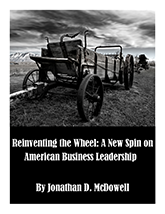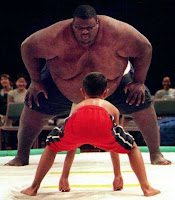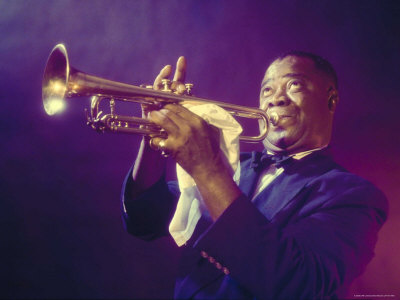 People frequently say that the best offense is a good defense. That actually doesn't make sense. I understand the thrust of their proposition, but the best offense is an offense that is indefensible. The best defense is a a defense that is impenetrable. One way to make sure your adversaries do not have a impenetrable defense is by making them think you don't have a good offense. That's why the devil's convincing the world he doesn't exist works so well. Because people put their guard down. They stop defending.
People frequently say that the best offense is a good defense. That actually doesn't make sense. I understand the thrust of their proposition, but the best offense is an offense that is indefensible. The best defense is a a defense that is impenetrable. One way to make sure your adversaries do not have a impenetrable defense is by making them think you don't have a good offense. That's why the devil's convincing the world he doesn't exist works so well. Because people put their guard down. They stop defending. A few weeks ago, the 13-0 Green Bay Packers came to Kansas City. My wife gave me an early Christmas present by getting tickets to the game. The Packers have been my favorite team since I was about eight years old. And this was the only professional game that I'd ever been to.
 The Packers have been absolutely unstoppable this year. And the Chiefs, well, have been quite stoppable. But through the entire game, the Packers couldn't contain the Chiefs offense. Not that the Chiefs scored a ton of points, but that it seemed as though the Chiefs could pass ten yards at a time, at will. Why do you think this was? I tend to think that the Packers were over confident in their own abilities and underestimated their opponents abilities.
The Packers have been absolutely unstoppable this year. And the Chiefs, well, have been quite stoppable. But through the entire game, the Packers couldn't contain the Chiefs offense. Not that the Chiefs scored a ton of points, but that it seemed as though the Chiefs could pass ten yards at a time, at will. Why do you think this was? I tend to think that the Packers were over confident in their own abilities and underestimated their opponents abilities. We can utilize these analogies in our own lives. Make sure that people don't see you coming. There is a time to be professional and competent. And I'm not proposing to feign ignorance. I'm just proposing that it would be much better to be underestimated and win, right?
I know an attorney that sometimes seems unkempt and non-caring. For instance, one day the right side of his shirt was completely un-tucked. Suit, suit-coat, button-up shirt and tie . . . and half of the shirt un-tucked. The next day? Suit with no coat, french-cuffs with cuff links, but the cuffs were folded contrary to the creases and looked sloppy. I don't know if he did this on purpose (and these were NOT the only two instances of wardrobe malfunction), but at first glace, you could question his ability to lawyer. However, when you read his briefs or and saw him when he spoke, you instantly knew you had underestimated him and under prepared. This guy was good.
 Its interesting to watch young attorneys interact with each other, judges, and attorneys senior to them. Some of them try way too hard to seem competent. Their behavior isn't congruent with their own beliefs about themselves and it shows as self-consciousness.
Its interesting to watch young attorneys interact with each other, judges, and attorneys senior to them. Some of them try way too hard to seem competent. Their behavior isn't congruent with their own beliefs about themselves and it shows as self-consciousness. Just because we're young doesn't mean we're incompetent. You don't have to prove to others you're competent through your interactions. If you're good, they'll know it by the trail of success you leave behind you. Don't think that your young age, or few years of experience makes you any less. Some may know of this quote, "Don't let anyone look down on you because you are young, but set an example . . ." Even Superman had to start somewhere . . .
And remember, if someone underestimates you because you're young, you just gained a powerful advantage. They will not see you coming. So utilize their over-confidence by using a great offense on their indefensible position.





































